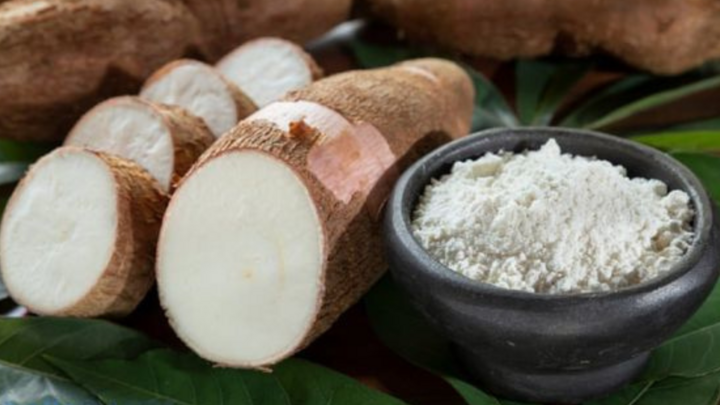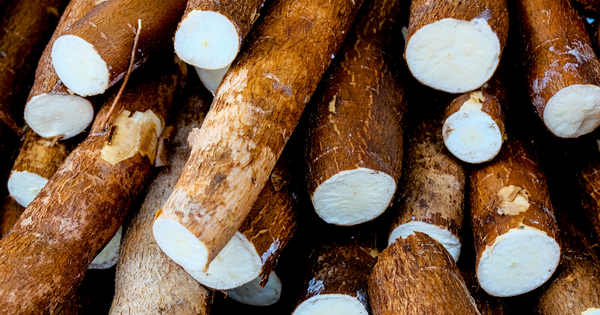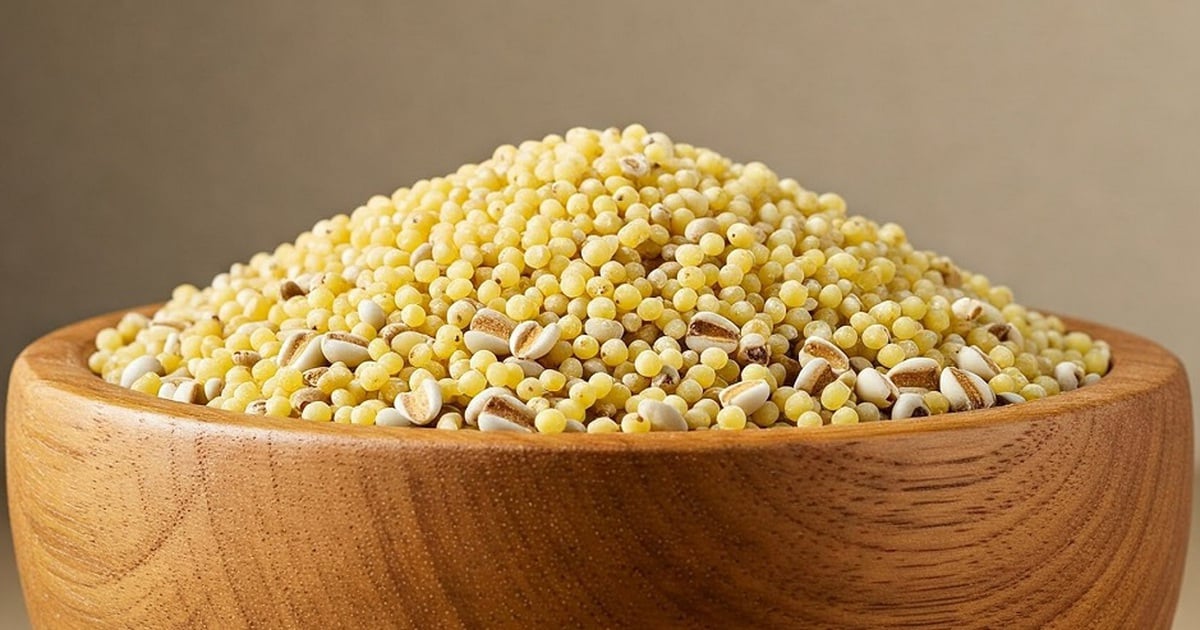Cassava contains many components that bring good health benefits. However, this tuber can also cause many negative effects on human health if not prepared properly, especially when eaten raw or eaten too much.
Nutritional composition of cassava
Cassava is a tuber that is very rich in carbohydrates. Every 100g of boiled cassava contains 112 calories. 98% of these calories are made from carbohydrates, the remaining calories come from small amounts of fat and protein.
Besides, cassava also provides the human body with fiber, minerals and some essential vitamins.
100g of boiled cassava contains the following specific nutrients:
- 27g Carbohydrate
- 1g Fiber
- Vitamin B1: 20% of body's daily needs
- Phosphorus: 5% of body needs/day
- Calcium: 2% of body needs/day
- Vitamin B2: 2% of body needs/day
- Iron, vitamin B3, vitamin C.
Effects of cassava
Cassava brings many benefits to the body and helps prevent some common diseases such as:
Treatment of diarrhea
According to the content on the Long Chau Pharmacy website, reviewed by University Pharmacist Tran Huynh Minh Nhat, cassava helps improve the intestinal tract and prevent diarrhea.
Cassava contains antioxidants that help improve diarrhea and stomach pain. Moreover, they also help eliminate toxins, stabilize the intestinal system and help the stomach function more effectively.
Headache relief
Cassava contains vitamin B2 and riboflavin, which effectively improve migraines and headaches. In addition, the amount of vitamin A in this tuber also helps brighten eyes and prevent wrinkles.
However, you should note that you should not overuse cassava because it can lead to acute poisoning. Use cassava in moderation to limit unwanted side effects.

Cassava helps relieve headaches, treat diarrhea... (Illustration: Pixabay)
Improve eyesight
Another great benefit of cassava is that it protects eye health. Eating cassava provides enough vitamin A and minerals necessary to improve eyesight and prevent poor eyesight in old age.
Wound healing
Cassava stems, leaves and roots are all beneficial in treating, preventing wounds from becoming infected and promoting faster healing.
Fever reducer
Boil cassava with leaves or boil into water to drink to reduce fever.
Improve digestion
The insoluble fiber in cassava helps improve the digestive system by absorbing toxins deposited in the intestines as well as reducing inflammation if present in the digestive tract.
Research published in The International Journal of Food Sciences & Nutrition shows that the fiber content of cassava prevents the occurrence of digestive problems.
Energy Boost
According to Boldsky, cassava is rich in carbohydrates that improve brain function and provide energy to the body. In addition, cassava is also beneficial for nerve health, reducing blood pressure and osteoporosis. Protein in the tuber maintains muscle health and nourishes tissues.
People who should not eat cassava
According to an article on the Medlatec General Hospital website with medical consultation from Dr. Duong Ngoc Van, to minimize health risks, these people should not eat cassava:
- Pregnant women who want to eat cassava should process it thoroughly before eating and should only eat it in limited quantities. Absolutely do not eat raw food.
- For children, this is a group with an immature digestive system. Therefore, adding cassava can damage the digestive system and seriously affect the health of children, even causing poisoning.
Thus, it can be seen that cassava is an extremely nutritious food but can lead to unnecessary health risks if supplemented incorrectly.
Source




![[Photo] Looking back at the impressive moments of the Vietnamese rescue team in Myanmar](https://vstatic.vietnam.vn/vietnam/resource/IMAGE/2025/4/11/5623ca902a934e19b604c718265249d0)
![[Photo] "Beauties" participate in the parade rehearsal at Bien Hoa airport](https://vstatic.vietnam.vn/vietnam/resource/IMAGE/2025/4/11/155502af3384431e918de0e2e585d13a)




























![[Photo] Summary of parade practice in preparation for the April 30th celebration](https://vstatic.vietnam.vn/vietnam/resource/IMAGE/2025/4/11/78cfee0f2cc045b387ff1a4362b5950f)





























































Comment (0)